Using the right keyword match type determines which search queries can prompt your ad to display. This post will guide you on the different keyword match types and how they can affect your ads.
Keywords are the heart and soul of any online marketing campaign.
Don’t let anyone tell you any different.
A good keyword match type strategy can help you determine the best searches to trigger your ads to appear in the search results.
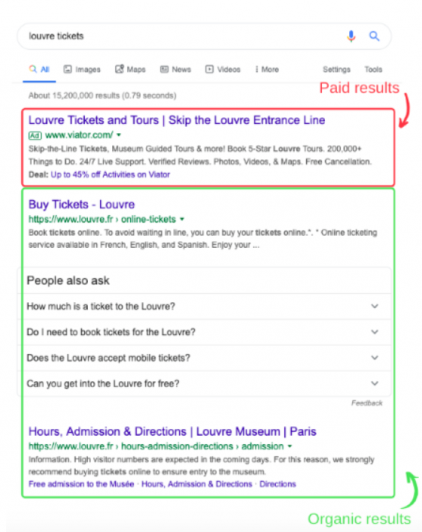
This is great news for SEOs who can capitalize on this gem to boost their content marketing campaigns.
Therefore, you must pay special attention to the keywords you use for your campaigns.
So, why are keyword match types important?
How many match types are there?
When setting up a CPC campaign on Google Ads, you’ll want to narrow down on specific keywords when targeting your audience.
Keyword match types provide you with the insight to reduce your ad campaign cost.
What are Keyword Match Types?
Keyword match types determine how similar the keywords need to match search queries so that the ad would be displayed on SERPs.
Therefore, it’s vital to know what keyword match types are, how many are there, and how to apply each in your ad campaign.
Different keyword match types will affect your content marketing campaign differently.
Google Ads allow content advertisers to use different keyword match types to boost their keyword targeting.
With keyword match types, you can determine how Google’s algorithms interpret your keyword choices, thereby allowing you to know exactly which searches your ads will show up on.
Ever wondered how it is Google just always seems to know what you’re looking for and shows it in ad form in your future searches?
Well, this is Google keyword choices through and through.
Each time you search for a product/service online only to see an ad on the search engine for a slightly different product/service than what you searched for, it’s the keyword match type strategy in effect.
However, depending on the keyword match type an advertiser uses, how closely linked an ad will be to a search query can vary quite a bit.
Therefore, it’s essential that you know exactly which keyword match type you intend to use and the outcome you intend to achieve.
You must know the right keyword match types to use to control how search engines interpret your keywords.
For example, if you type “t-shirts for women” as a search query, Google shows you relevant links to your search.
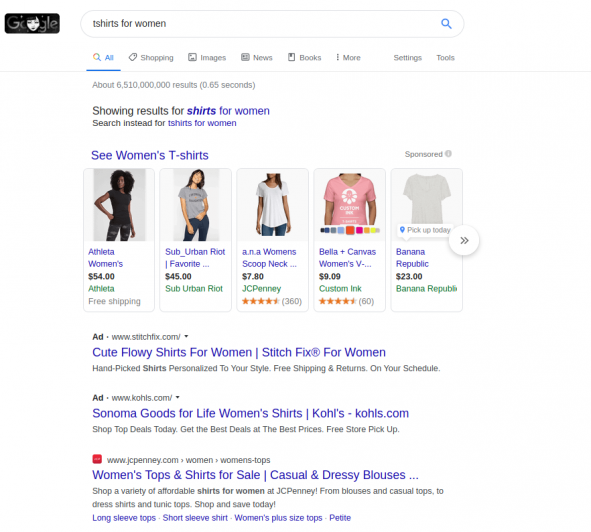
A keyword match is basically used in keywords to control online users’ searches and use them to trigger your ad.
Types of Keyword Match
There are four keyword match types you can use when creating a text ad campaign.
Each type in the Google Ads account has its merits and demerits.
Therefore, you must know which keyword match fits your ad campaign perfectly before deciding which one to use.
Here’s a comprehensive overview of each keyword match and how to utilize them.
Broad Match
The broad match is the default keyword match type on Google.
Therefore, unless you set your keywords to phrase match or exact match, they will stay broad match.
If you decide to use this option, then the paid search platform you’re using will treat your keywords more like a general guideline for searches where you want to appear.
Therefore, when you use a keyword like “chew toy,” your ad could end up on searchers for everything from “a teething ring for babies” to “chew toys for dogs.”
Or perhaps you want to enroll in an in-person nursing school to become a nurse practitioner.
So, you type this in the search box “local nurse practitioner program.”
The search engine returns these search responses.

You’ll notice that only one of the ads in the image above actually offers a local program.
All other options are online.
Theoretically, you think Google will catch this since the search query had the word “local” in it.
However, because most of the ads in the image had broad match keywords, you’ll see multiple ads like in the above picture.
These ads aren’t necessarily irrelevant.
However, they also aren’t what you searched for initially.
Therefore, they’re of no interest to you as the researcher.
Broad Match Modifier
The modified broad match works more like the middleman between broad match and the other more restrictive keyword match types below.
The broad match modifier also allows you to reach a wider audience.
However, you will have more control over who sees your ad.
You can do this by “locking” individual words in your keyword by adding the “+” parameter.
Adding the plus sign before any term in your keyword basically tells Google that any search query made must include that term.
This gives you better control over broad match keywords.
Phrase Match
The phrase match is even more restrictive over who sees your ad.
This keyword match type strategy guarantees that only users who search for specific keyword phrases will see your ad.
Therefore, if you searched for “pink salt lamp,” here’s what you’d expect from Google.
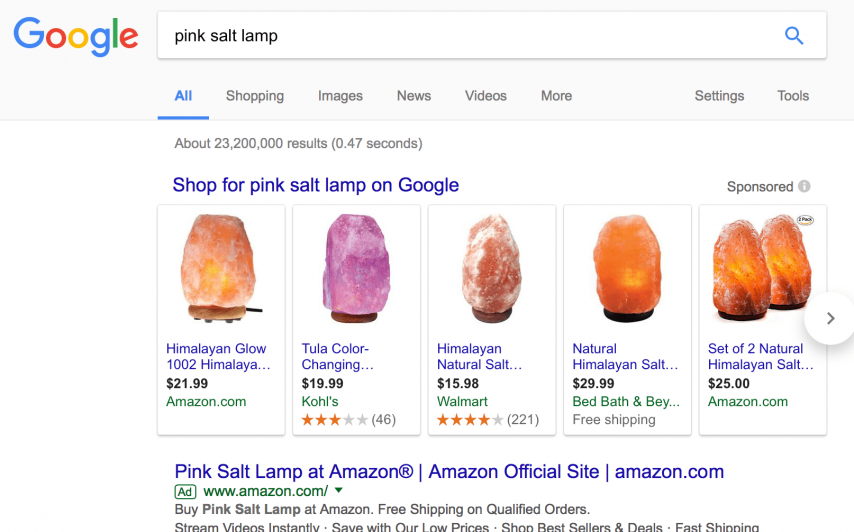
Traditionally, the phrase match keyword only appears when the searcher enters the key phrase exactly with no words or special characters in between.
However, the searcher can add words before or after the key phrase.
Therefore, here are some search results that may appear for the keyword above:
- “Small pink salt lamp”
- “Himalayan pink salt lamp”
- “Pink salt lamp glow”
- “Natural glow pink salt lamp”
Also, your ad won’t appear in searches like:
- “Himalayan salt lamps”
- “Salt lamps that are pink”
I’m hoping that demonstration drives the point home.
If you want to create a phrase match keyword, you will need to add quotation marks around the keyword.
It should look something like this “pink sale lamp,” or it won’t qualify as a phrase match.
Exact Match
Lastly, we have the exact match.
This is the most specific and most restrictive of all keyword match types.
Previously, users would only be able to see your ad when they searched for your exact keyword by itself.
Therefore, if your keyword phrase was “black neckties,” your ad would only show up when users searched for only “black neckties” in the exact order.
Even “expensive black neckties” wouldn’t count.
That’s how restrictive the exact match was then.
Fortunately, Google recently made changes to this match type.
Therefore, although you would use exact match keyword phrases, your ads may match to searches containing plurals, synonyms, and other variations on your keyword.

On the plus side, using exact match keyword phrases meant that users who click on your ads are more likely interested in your brand or product/service.
Therefore, it reduces unwanted expenses and keeps conversion rates high.
Negative Match
While negative keywords don’t necessarily rank as keywords match types, they play such an important role in the searches where your ad appears.
You can use negative keywords to tell search engines which keywords you don’t or wouldn’t want your ads displayed on.
They give your even more control over your ad placements and can be particularly valuable for SEOs who know their respective industries and their ads better than any automated algorithm.
Therefore, using negative keywords as a targeting option can prevent your ad from appearing in irrelevant search queries, keeping your ROI and CTR as high as possible.
Another interesting feature about negative keywords is that you can add them later, and only if necessary.
For instance, when you notice one of your ad campaigns being clicked multiple times from irrelevant searches but doesn’t have any conversions, add it to your negative keyword list immediately.
Analyzing the “Search Term” Report
Being in the online field and striving to win as many clicks, leads, and conversions as possible have taught me one thing.
Every brand, product, or service is inherently different.
Therefore, there’s no general rule of thumb as to what keyword match type strategy or any other SEO strategy will work best for you.
The secret is in attempting the unknown and monitoring the results.
Then using the data you’ve collected to better your campaign efforts.
The same is true for keyword match types.
Depending on your budget and goals, you should be prepared to invest a lot of time determining the proper balance between these keyword match types.

Analyzing your data allows you to determine which search query types perform best for you.
You can then use this data to build out the exact keyword match based on the search queries.
Here’s how you collect and analyze the data you collect on keyword match.
Analyze How Close Search Queries are to Your Keywords
While few SEOs know how to set up keyword match types, even fewer SEO experts take the time to monitor and analyze their progress.
Simply looking at clicks, impressions, and conversion numbers in your Google Ads’ Keywords tab won’t do you much good if you don’t use the data to optimize your keyword match types.
You’ll also want to check the actual search terms that searchers are fond of using and modify your keyword phrases using that data.
Google Ads offers several simple ways for analyzers to see these queries and use them to optimize their keyword match types.
With this data from Google Ads, you can set up your keyword match to ensure you have a more effective CPC campaign.
Generate New Keyword Ideas
Some search terms may trigger ads you never even considered using.
Some may be bad, but others may actually work in your favor.
Therefore, it’s vital that you continuously search for new keywords relevant to your keyword search campaign.
You can even use your keyword and website URL seeds to generate more keyword ideas.
Google Ads also functions like BiQ’s Keyword Intelligence or Keyword Planner.
Both tools will propose new keyword ideas based on your current keywords and website.
However, BiQ Cloud’s tool also allows you to retrieve historical statistics and data, including average CPC and search volume.
These data help you determine whether to use the keywords or not.
You can then add the keyword terms that generate more clicks into your keyword list.
Generate New Negative Keyword Ideas
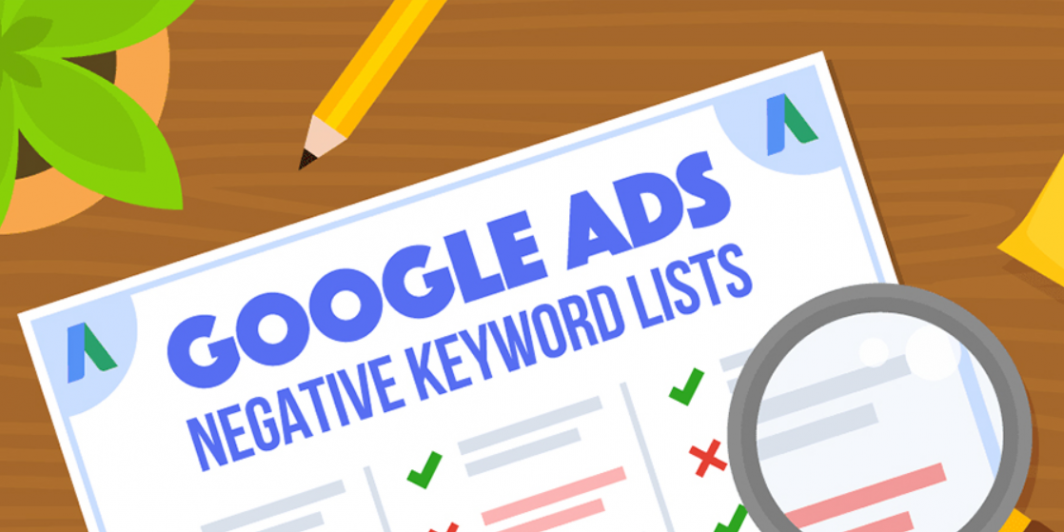
Similarly, you’ll find keywords in the search term report that help you get ideas for search terms you can add to your list of negative keywords.
The Google Ads report will provide you with the list of terms to add to your negative keywords.
Inevitably, you will spot some search terms in your search terms report that are closely related to (but not exactly) what you sell.
These are the search terms you’ll want to include in your report.
How Do Match Types Affect Your Ads?
When used properly, match types can have a tremendous impact on your website’s overall performance.
After all, they are the control you’ll use to determine the exact search queries you are bidding on.
Therefore, as you determine the best keyword match type strategy to use in your ad campaign, ensure you keep these considerations in mind.
Performance
How your keyword performs can give you invaluable insights into which keyword match types will give you the best return on investment.
Competitors
You will also have critical data on what keywords your competitors are bidding on and use the same keywords to try and outbid them.
This is particularly effective when faced with stiff competition, and your competition seems to be performing much better than you.
Bids
Did you know that bids can affect your cost per click and cost per conversion?
Often, advertisers use various methodologies to manipulate bids.
After you’ve determined the best bids on certain keywords, you can adjust what match types are ideal.
Finding the Right Keywords
To reach your audience, you must first understand what they’re searching for when looking for a business or product/service like yours.
But while this might not offer you much on what their intentions are or the products and services they’re looking for, it will provide you with crucial keyword insight to use in your future marketing efforts.
BiQ’s Keyword Intelligence is the best SEO tool to help you find the right keywords with high search volume and low CPC.
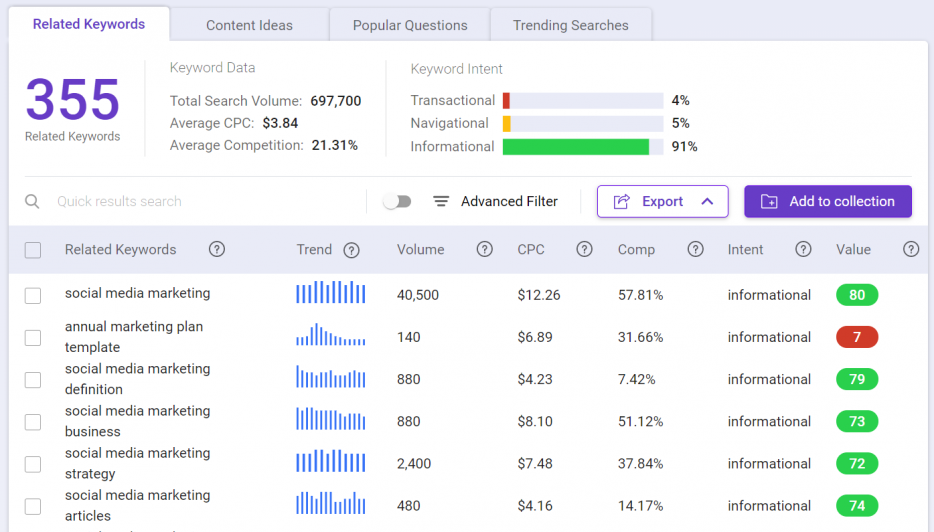
BiQ’s Keyword Analyzer feature will help you understand why your target audience might use certain keywords and phrases in the search engine.
With this information, you can plan your content better, so it meets your audiences’ needs.
This way, you’ll always be in front of your target audience at all times whenever they need to see your content, thereby bringing more traffic to your website at a lower CPC.
Conclusion
Optimizing your use of keyword match types is vital as it avails you the benefit of critical data to reach your target audience.
At the same time, you’ll avoid unnecessary spending on irrelevant clicks, thereby increasing your ROI.
BiQ Cloud provides crucial insight into optimizing your Google Ads campaigns and understanding when and how often to use the right keywords in your ads.
Ultimately, you can save a lot on your CPC costs if you can find the right keywords and optimize their use in your ad campaign.




